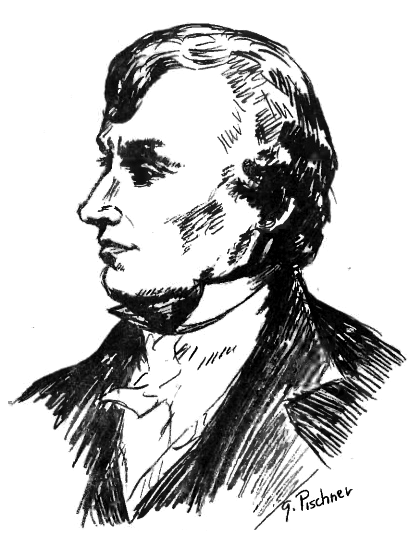
Liberia is a country in West Africa which was founded, established, colonized, and controlled by citizens of the United States and ex-Caribbean slaves as a colony for former African American slaves and their free black descendants. It is one of only two sovereign countries in the world that were started by citizens and ex-Caribbean slaves of a political power as a colony for former slaves of the same political power, the other being Sierra Leone, established by Great Britain. Settlement of former slaves was organised by the American Colonization Society (ACS). The mortality rate of these settlers was the highest in accurately recorded human history. Of the 4,571 emigrants who arrived in Liberia from 1820 to 1843, only 1,819 survived until 1843.
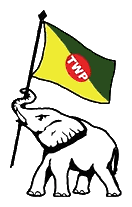
The True Whig Party (TWP), also known as the Liberian Whig Party (LWP), is the oldest political party in Liberia. Founded in 1869 by primarily Americo-Liberians, the party dominated Liberian politics from 1878 until 1980. The nation was virtually a one-party state, although opposition parties were never outlawed. Initially, its ideology was strongly influenced by that of the United States Whig Party.

The Democratic Party is a centre-left liberal political party in Hong Kong established in 1994. Chaired by legislator Wu Chi-wai, it is currently the third largest party in the Legislative Council of Hong Kong, having seven seats and 37 District Councillors. It is also the largest pro-democracy party in the legislature.

The Hong Kong Federation of Trade Unions is a pro-Beijing labour and political group established in 1948 in Hong Kong. It is the largest labour group in Hong Kong with over 410,000 members in 251 affiliates and associated trade unions. Presided by Ng Chau-pei and chaired by Wong Kwok, it currently commands five seats in the Legislative Council of Hong Kong and 30 District Councillors.
The Alberta Social Credit Party was a provincial political party in Alberta, Canada, that was founded on social credit monetary policy put forward by Clifford Hugh Douglas and on conservative Christian social values. The Canadian social credit movement was largely an out-growth of the Alberta Social Credit Party. The Social Credit Party of Canada was strongest in Alberta, before developing a base in Quebec when Réal Caouette agreed to merge his Ralliement créditiste movement into the federal party. The British Columbia Social Credit Party formed the government for many years in neighbouring British Columbia, although this was effectively a coalition of centre-right forces in the province that had no interest in social credit monetary policies.
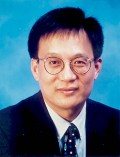
The 2004 Hong Kong Legislative Council election was held on 12 September 2004 for members of the Legislative Council of Hong Kong (LegCo). The election returned 30 members from directly elected geographical constituencies and 30 members from functional constituencies, of which 11 were unopposed.

The Greens New South Wales is the state Greens party in New South Wales and a member party of the Australian Greens.

The 1997 Liberian general election was held on 19 July 1997 as part of the 1996 peace agreement ending the First Liberian Civil War. The presidency, as well as all seats in the House of Representatives and the Senate were up for election. Voter turnout was around 89%. Former rebel leader Charles Taylor and his National Patriotic Party (NPP) won the election by a substantial margin; Taylor won 75.3% of the vote in the presidential election, whilst the NPP won the same number of votes in the parliamentary election. Taylor was inaugurated as president on 2 August 1997.

General elections were held in Liberia on 15 October 1985. These were the first elections since the 12 April 1980 military coup that brought Samuel Doe to power. During 1984, a new draft Constitutional referendum was approved, which allowed a 58 member civilian and military combined Interim National Assembly, headed by President Samuel Doe. The ban on political parties were lifted and four parties, namely, the President's National Democratic Party of Liberia, Liberian Action Party, Unity Party and Liberia Unification Party were in fray.

Elections to the United States House of Representatives for the 1st Congress were held in 1788 and 1789, coinciding with the election of George Washington as first President of the United States. The dates and methods of election were set by the states. Actual political parties did not yet exist, but new members of Congress were informally categorized as either "pro-Administration" or "anti-Administration".

The Legislature of Liberia is the bicameral legislature of the government of Liberia. It consists of a Senate – the upper house, and a House of Representatives – the lower house, modeled after the United States Congress. Sessions are held at the Capitol Building in Monrovia. Legislature of Liberia is considered one of the three branches of government based on the Article III of the Constitution of Liberia that stipulates all three branches ought to be equal and coordinated based on the Principle of checks and balances.

Civic Party is a pro-democracy liberal political party in Hong Kong. It was established in 29 March 2006 by a group of barristers. Led by Alvin Yeung and chaired by Alan Leong, the party is the fourth largest party in the Legislative Council of Hong Kong, commanding five seats. It also has 12 seats in the District Councils.
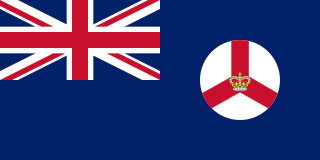
The colony of Singapore was a British Crown colony that existed from 1946 until 1963, when Singapore became part of Malaysia. When the Empire of Japan surrendered to the Allies at the end of World War II, the island was handed back to the British in 1945. In 1946, the Straits Settlements were dissolved and Singapore together with the Cocos-Keeling and Christmas islands became a separate Crown colony. The colony was governed by the British Empire until it gained partial internal self-governance in 1955.
The United States Senate elections of 1792 and 1793 were elections of United States Senators that coincided with President George Washington's unanimous re-election. In these elections, terms were up for the ten senators in class 2.
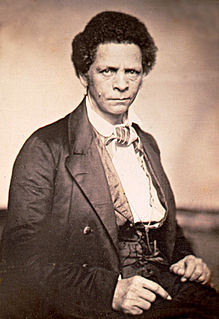
General elections were held for the first time in newly independent Liberia on 27 September 1847, alongside a constitutional referendum. The result was a victory for Governor Joseph Jenkins Roberts of the Pro-Administration Party, who defeated Samuel Benedict of the Anti-Administration Party. In a separate vote, Nathaniel Brander was elected Vice President.

A constitutional referendum was held in Liberia on 27 September 1847. The new constitution would create a President with executive powers and a bicameral Legislature. It would also restrict voting rights to those of African descent and landowners. It was approved by 79% of voters. In Monrovia, Millsburg, Bassa Cove and Bexley 100% of voters supported the constitution, whilst 100% voted against it in Sinoe. In Edina opponents of the constitution prevented the polling station opening, and a fist-fight broke out between Amos Herrnig and Ephraim Titler, two of the Declaration of Independence signatories. Opponents of the constitution in Bassa Cove and Bexley chose not to vote.

General elections were held in Liberia on 1 May 1951, the first to be held under universal suffrage, as previously only male descendants of Americo-Liberians had been allowed to vote. This was the first elections in Liberia where women and the local Liberians owning property were allowed to vote based on a Constitutional Referendum in 1945–46. In the presidential election, William Tubman of the True Whig Party was the only candidate, and was re-elected unopposed.

General elections were held in Liberia on 7 October 1975, alongside a simultaneous referendum on presidential term limits. In the presidential election, incumbent William Tolbert of the True Whig Party was the only candidate, and was re-elected unopposed. In the legislative elections True Whig Party candidates won all 71 seats in the House of Representatives and all 18 seats in the Senate unopposed. Voter turnout was around 80%.

The 1991 Hong Kong Legislative Council election was held for members of the Legislative Council of Hong Kong (LegCo). The election of the members of functional constituencies was held on 12 September 1991 and the election of geographical constituency seats was held on 15 September respectively. It was the first ever direct election of the Legislative Council in Hong Kong history. There were 18 members from directly elected Geographical Constituencies, 21 members from Functional Constituencies, 17 members appointed by the Governor, and 3 official members.

The 2015 Hong Kong District Council elections were held on 22 November 2015. Elections were held to all 18 District Councils with returning 431 members from directly elected constituencies after all appointed seats had been abolished.


